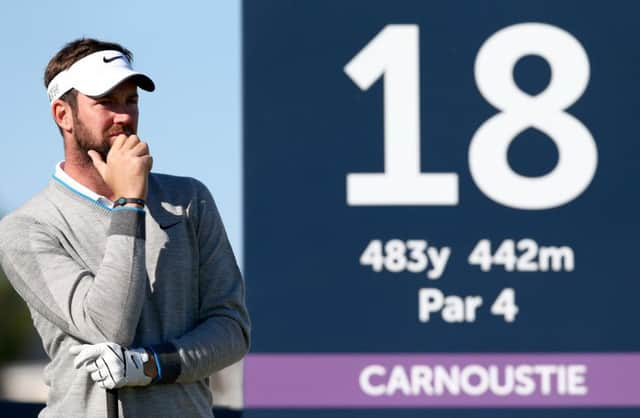Paucity of new Scots talent joining elite '˜a worrying trend'


First highlighted in this newspaper around 15 months ago, the home of golf is really struggling compared to most other countries when it comes to seeing promising players make a smooth transition from amateur to professional.
Russell Knox, a new member this season, is currently Scotland’s youngest European Tour card holder at 30, two years younger than both Scott Jamieson and Richie Ramsay, on a list of 10 which also includes Marc Warren (34), Jamie McLeary (34), Andrew McArthur (36), Craig Lee (38), David Drysdale (40), Stephen Gallacher (41) and Paul Lawrie (47). Of those players, Knox and Ramsay are the newest recruits to the paid ranks but, having both made the switch in 2007, it means that almost a decade of talent is either still floating around in pools below the main circuit or has been lost completely.
Advertisement
Hide AdAdvertisement
Hide AdThe worrying situation is baffling, given that the country’s leading amateurs get more support and playing opportunities than the likes of Colin Montgomerie when he was at the same stage of his blossoming career. They can also hold their own in the non-paid ranks, a world title and two European titles having fallen to Scottish teams since 2008, as well as various individual successes, including an Amateur Championship triumph for Bradley Neil two years ago.
“I’m not sure why it is,” replied Jamieson to being asked about Scotland struggling to get a new wave of talent on to the European Tour at a time when the likes of Willett, Sullivan, Wood and Fitzpatrick are all making an impact in their 20s. “Maybe we need to start giving those amateurs feelers in the pro game when they are still amateurs, so they can get a base as to where they stand.
“The US Amateur champion, Bryson DeChambeau, came to the Middle East for the Desert Swing and made three cuts. There was another amateur, Englishman James Allan, in the field in Dubai, and he’ll have seen the way the courses are set up because it’s a massive difference, even from the Challenge Tour. You get firm, fast greens and a lot of rough.
“You need to see how you are like-for-like in the heat of the battle. It probably wasn’t until I was on the Challenge Tour that I was thinking I might be good enough out here. Some people can argue that if you throw them in too early it almost has the opposite effect. So I guess it’s hard to get the balance right. It’s different for different individuals.”
Jamieson, who cut his professional teeth on the third-tier PGA EuroPro Tour before stepping up to the Challenge Tour then earning a place at the top table in 2011, is crystal clear about what made the difference for him.
“I was in America. I put it 100 per cent down to why I’m doing this for a living,” said the Glaswegian, echoing a sentiment expressed by Knox after he became the first Scot to win a World Golf Championship with his success in Shanghai last November. “I just improved so much during my stint at Augusta State, where I spent nine months of the year. I actually still do a bit of work with my main coach from then, not necessarily on my swing but organising practice and such like.”
Drysdale, McArthur, McLeary are joined by invitee Neil, as well as Scott Henry and David Law, in the Tshwane Open today in Pretoria, where former Masters champion Charl Schwartzel sets out as the title favourite.